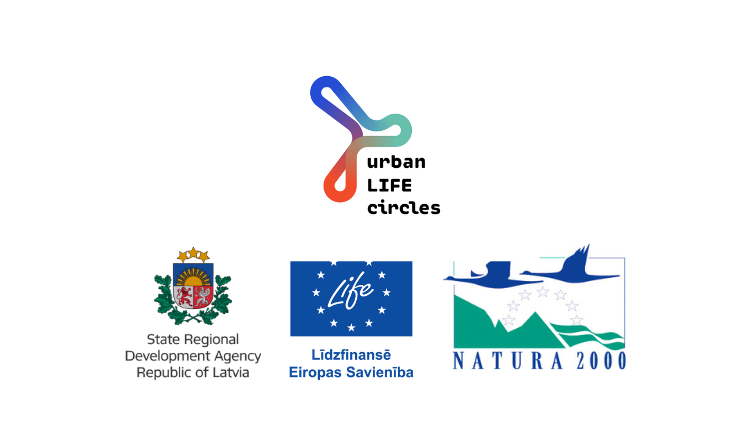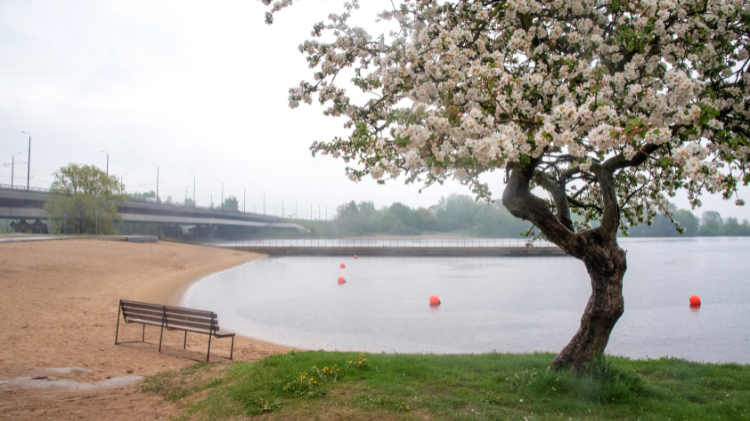Introducing adaptive community-based biodiversity management in urban areas for improved connectivity and ecosystem health
Biodiversity, the rich diversity of life on Earth, is being lost at an alarming rate, according to the IPBES Global Assessment Report on Biodiversity and Ecosystem Services. The population sizes of mammals, birds, fish, amphibians and reptiles have seen an alarming average drop of 68% since 1970. With the loss of biodiversity, nature’s ability to provide us with ecosystem services (including clean water and air, food and natural resources) will decline. More than half of the world’s GDP depends on nature and its services, and the 3 largest economic sectors – construction, agriculture and the food industry – depend heavily on it. The more functioning and more diverse ecosystems there are, the better equipped we are for human existence and able to withstand environmental pollution and adapt to climate change.
With the loss of connection with the processes taking place in nature, it becomes more difficult to understand the interaction of these processes and man’s place in them. This is especially important for children, who develop their understanding of ongoing processes through experience that is also based on sensory perception. Therefore, it is important to give children the opportunity to learn about natural processes.
Creating a biologically diverse area in the urban environment would provide an opportunity for residents to experience and embody natural processes right here – the city. This, in turn, would allow the target groups to be linked to the processes taking place in nature through the knowledge of plants, their significance and traditional farming methods. The territory of Lucavsala on the side of small gardens is degraded and the tenants of small gardens face significant security threats related to the non-existent management of the territory. Lucavsala’s green infrastructure, if properly managed, would make a significant contribution to green infrastructure in the urban environment. Lucavsala has historically developed small gardens, which are not far from the urban gardens that have received a lot of attention in Europe today. Greening the urban environment is recognized as one of the most successful methods for tackling various urban climate issues, such as creating a pleasant microclimate for the population or reducing air and water pollution.
Project aim
The aim of the urbanLIFEcircles (101074453 LIFE-2021-SAP-NAT) project ”Introducing adaptive community based biodiversity management in urban areas for improved connectivity and ecosystem health” is to preserve, improve and sustainably manage green infrastructure in cities, increase biodiversity by restoring and improving the connectivity and health of ecosystems, and at the same time provide citizens with new recreational areas to spend time and enjoy the benefits of nature. In the project three cities – Riga (LV), Tartu (EE) and Aarhus (DK) – are united.
Project actions
The specific objectives are to:
- Engage communities in cities to actively participate in conservation;
- Assist businesses to develop supporting products and services;
- Establish synergies for biodiversity-oriented governance;
- Deploy science-based methods for adaptive management; and
- Demonstrate in practice that system change is possible.
To achieve project aims, Riga will establish strategic approach for biodiversity conservation by developing long term strategy focusing on the biodiversity issues.
Riga will restore periurban protected areas – coastal and grassland habitat restoration in NATURA 2000 site “Jaunciems”
Riga will create a demo area with various function zones which combine different forms of biodiversity support – wetlands, orchard, a forest garden, meadows, community garden and recreation zone.
In order to improve connectivity of biodiversity, Riga will create the ~8 km long green corridor between the demo sites of the urban green circle, thus enhancing the movement between peri-urban areas and urban HNV sites.
Project partners
In Latvia – Riga City Council and NGO Latvian Fund for Nature
In Estonia – Tartu city (Tartu linn), University of Tartu (Tartu Ülikool), Tallin University of Technology (Tallinna Tehnikaülikool), Foundation Rohetiiger, NGO “Kino” (MTÜ Kino)
In Denmark -Aarhus City Government (Aarhus Kommun)
Funding
Total Eligible Budget: 10 273 122 EUR, EU Contribution: 6,163,872 €
Riga City budget 1 523 398 EUR. Self contribution 152 340 EUR..
Project duration
2022.-2027
Coordinator contact details
Aija Rantiņa
aija.rantina@riga.lv +371 29497363



